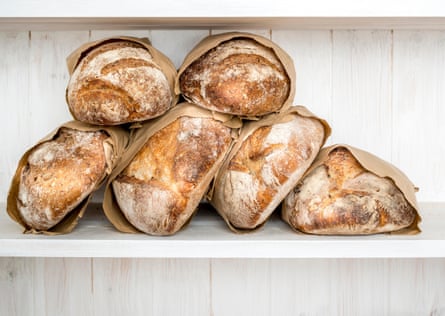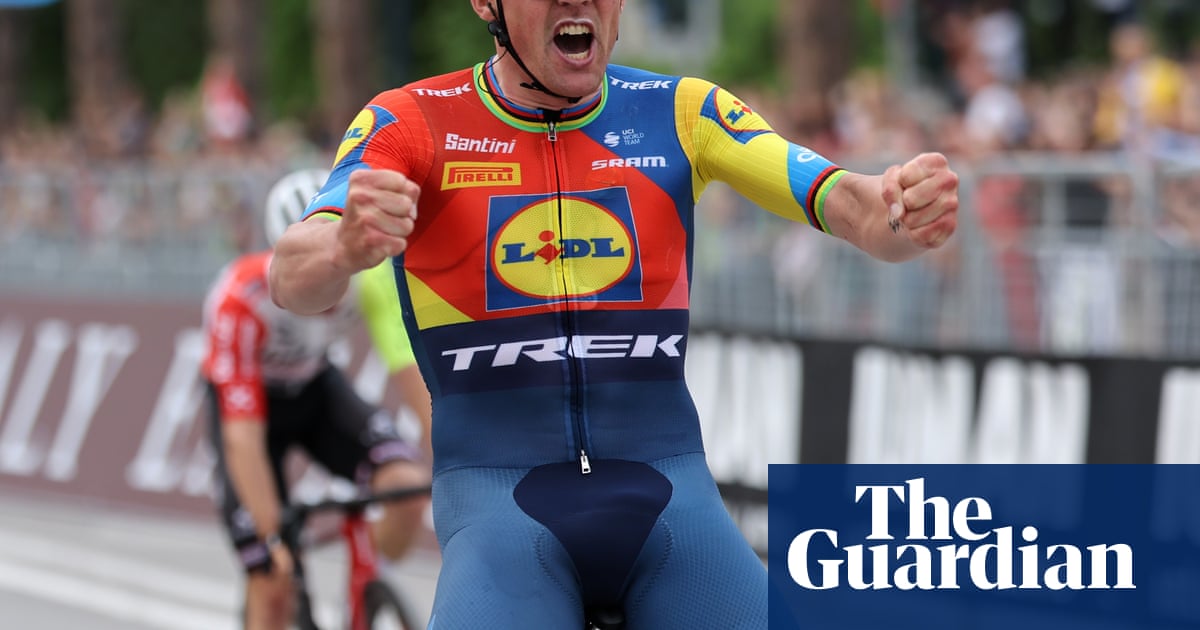Toast and jam, bacon sandwiches and boiled egg with soldiers may be at the heart of traditional British food culture but bread is making up an ever thinner slice of our diet – putting pressure on some famous brands.
While still one of the most ubiquitous items in shopping baskets, the popularity of the packaged sliced loaf has been sliding downhill since the Hovis lad puffed up a cobbled street with his bicycle to the strains of a brass band in the 1973 TV ad.
Now Hovis’s owner, Endless, is in talks with the owner of rival Kingsmill – Associated British Foods (ABF) – about a possible merger of the bakery businesses, which together account for just under a quarter of the packaged bread market, after both have struggled to get out of the red for several years.
ABF’s chief executive, George Weston, was saying back in 2017 that its bakery division was “making an unsustainable level of loss” as it faced commodity price inflation, even before the full invasion of Ukraine and an accelerating climate crisis supercharged the price of wheat.
As one bakery insider puts it: “The packaged bread industry is in inexorable decline. An industry solution is needed.”
Rising costs – from energy and transport to wheat and labour – have combined with pressure on sales as packaged bread faces increasing competition from a huge range of other options.
Whether it’s starting the day with yoghurts and breakfast biscuits or protein pots, salad bowls, noodles and sushi for lunch, sliced bread is being sidelined amid trends for low-carb diets and concerns about ultra-processed foods.
“Whenever a new breakfast or lunch option comes into the market, more often than not its bread that loses out,” says Kiti Soininen, the head of food and drink research at the market research firm Mintel.
While only 3% of people do not buy bread at all, according to Mintel, only a third of us eat sliced loaf bread on a daily basis, down from about half in 2015, according to polling for the Grocer trade journal.
The trend is even stronger among younger shoppers, with those 34 and younger now 15% less likely than average to buy wrapped bread, while those aged over 65 are 11% more likely to, according to grocery industry analysts Kantar.
Mintel’s Soininen says younger people tend to go for “huge variety” in what they eat, ditching traditional favourites in search of new ideas such as protein shakes.
While total bread sales are down, wrapped and sliced loaves are taking the biggest hit. The number sold in the UK has slumped 15% in the past five years, according to Kantar, while the volume of flatbreads sold has increased by 52% and pittas by 7%.
Part of the pressure on the big brands is about price. An average branded bread loaf weighing 800g is now priced at £1.43, up almost a third from £1.10 on average in the year to April 2021.
In the face of rising household bills, shoppers have increasingly switched away from brands to supermarkets’ own-label breads – which can be half the price. Own-label now accounts for just over two-fifths of the market.
Supermarkets have responded to waning demand by reducing the amount of shelf space devoted to packaged bread so that they mostly stock only two of the major brands – adding to the pressure on Kingsmill, which had many product lines delisted by Tesco last year, and also Hovis.
after newsletter promotion
Fraser McKevitt, the head of consumer insight at Kantar, says it is not all about price. The evidence is that shoppers are also switching to making fewer – but pricier – bread purchases, with the rising popularity of farmhouse-style loaves and sourdough, which are perceived as “better bread with more texture”.
“A lot of people are thinking about [carbohydrate intake], and if they are going to have carbs, then they are going to have something that feels a bit less artificial,” he says.
Soininen from Mintel agrees: “Premium, slightly more special things are doing well and those very competitively priced are doing well – it is those in the middle that are not.”
Seemingly, bread cannot win – when times are good, households look to treat themselves with takeaway treats from companies such as Greggs or Pret a Manger while cash-strapped youngsters are increasingly minded to skip breakfast altogether.
The fallout is there to see in the latest accounts available for Hovis, which reveal continued losses in a UK market that its directors said was “highly competitive”.
It says that 2022 and 2023 proved “hugely challenging” amid “rampant levels of cost inflation in the UK and abroad” after the Covid crisis. “As a business we have absorbed significant inflationary pressures from rising energy bills and volatility in wheat/flour prices – impacted by the war in Ukraine and elsewhere,” they say.

Sales at Hovis Group, which employs almost 3,000 people and about half of whom work in manufacturing, rose more than 50% to £489m in the year to 30 September 2023, helped by inflation. However, the company made a pre-tax loss of £3.6m after spending more than £2m on restructuring. The previous year it made a £29m loss.
Meanwhile, ABF’s bakery division, Allied Bakeries – which includes Kingsmill, Allinson’s and Sunblest, incurs annual losses of about £30m despite sales of about £400m, according to analysts at Panmure Liberum.
Both businesses are facing strong competition from the family-owned Warburtons, now the UK’s biggest bread brand, which has gained ground through innovation – from giant crumpets to seeded flatbreads. It is now understood to account for more than a quarter of packaged bread sold.
Warburtons’ latest accounts show sales jumped by 17.4% to £711.3m in the year to 30 September 2023, and pre-tax profits soared nearly sevenfold to £34.3m from £5.1m a year before.
A merger between the UK’s second- and third-largest bread brands is likely to attract scrutiny from the competition authorities, but as Anubhav Malhotraof the investment bank Panmure Liberum says: “The current level of market competition and the lossmaking status of the businesses involved support the case for approval.”
He suggests that a “merger of equals” between Hovis and Allied is needed “to restore profitability and ensure long-term viability”.

.png) 8 hours ago
5
8 hours ago
5













































